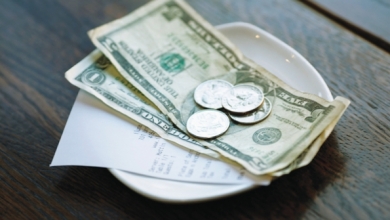
The word “Tip,” as in giving a waitress a $10 tip, referring to gratuity, is an acronym that means “To Insure Promptness,” right?
Nope, that’s not correct, according to Today I Found Out.
The real origin of the word “tip” is a bit more obscure than that.
In terms of the “gratuity” definition, it most likely comes from a popular form of speech among thieves, beggars, and hustlers, called the “Thieves’ Cant” (also sometimes called “Rogues’ Cant”), which arose in Great Britain several hundred years ago with the primary aim of keeping non-thieves and the like from being able to fully understand what the thieves were talking about, according to Today I Found Out.
One such slang word in this Thieves’ Cant was “tip”, meaning “to give or to share”. The first documented usage of “tip” this way dates back to 1610, according to Today I Found Out.
At some point within the next century, this sense of the word spread to being used by non-thieves as referring to money given as a bonus for service rendered, with the first documented instance of this definition popping up in 1706 in the George Farquhar play, The Beaux Stratagem, “Then I, Sir, tips me the Verger with half a Crown…”
As to the ultimate origin of the word “tip” in English, meaning anything, it first popped up in the 13th century meaning “end, point, top”, probably from the Middle Dutch word “tip”, meaning “utmost point or extremity,” according to Today I Found Out.
For more information click here: Today I Found Out

